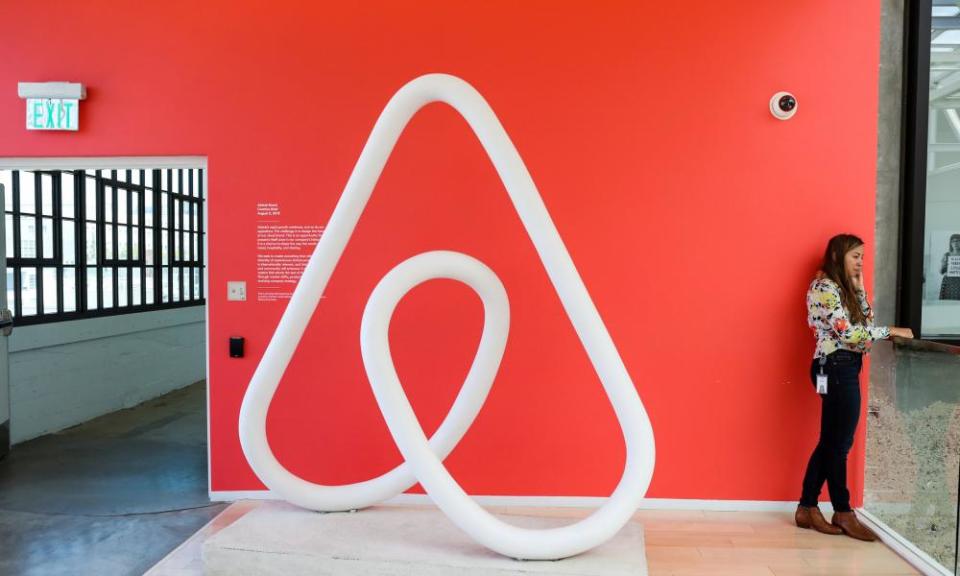Not just homes any more: Airbnb expands into hotels and luxury spots

Airbnb has expanded its offering to include hotels, luxury properties and a loyalty programme for guests as the California startup shifts towards a full-service travel-booking company.
Hoteliers and B&Bs have long been listing their rooms on the platform, but the company is adding extra search categories for users who are not looking to rent someone’s home or room.
“Airbnb was designed for when we were much smaller,” said the company’s CEO, Brian Chesky, on stage at a packed event space in the Nob Hill area of San Francisco on Thursday.
The platform, he said, has grown to include 4.5m places to stay, making it difficult to find what users were looking for.
“We have a lot more than shared rooms, private rooms and entire homes,” he said, announcing new categories for vacation homes, boutique hotel rooms, B&Bs and “uniques”, a classification that includes tree-houses, boats, yurts, igloos and a 30ft beagle-shaped house called Sweet Willy. The platform will also offer curated collections of homes for the family (homes that come with toys, books and games consoles), work, honeymoon and group travel.
To reward regular and highly rated customers, Airbnb is also launching a “superguest” loyalty programme as a counterpart to its existing “superhost” programme. Superguests will get benefits such as discounts, airport pickups, flight upgrades and lounge access.
A pilot with 10,000 guests starts this spring and it will be rolled out in the summer. “It’s your passport to a new travel lifestyle,” said Chesky.
The company is also adding new luxury tiers, Airbnb Plus and Beyond by Airbnb, in an effort to attract high net-worth customers who may have balked at the idea of staying in someone else’s house.
Airbnb Plus homes are inspected in person by Airbnb for cleanliness, comfort and design and come with a dedicated support team, making the company a direct challenger to the London-headquartered home rental firm OneFineStay.
Beyond by Airbnb is a standalone site based on the company’s acquisition of Luxury Retreats in 2017. It will offer high-end properties, including optional concierge services, when it launches in spring.
The announcement comes at a time when Airbnb, much like other “sharing economy” firms such as Uber, faces legal challenges in cities including New York, San Francisco, London and Berlin. Regulators argue that Airbnb’s short-term rental model drives up rents, creating problems for residents seeking long-term accommodation.
The expanded offering will ruffle the feathers of some corners of the travel industry, particularly as the platform will significantly undercut the commissions taken from hotels by sites such as Expedia and Booking.com.
“If Airbnb wants to enter the hoteling business, then it needs to be regulated, taxed and subject to the same safety compliances and oversight that law-abiding hotel companies adhere to each and every day,” said Troy Flanagan from the American Hotel and Lodging Association, which has butted heads with Airbnb for not playing by the same rules.
Airbnb, which has a valuation of $30bn, needs to show that it can generate new revenue streams before its initial public offering, which could take place as soon as 2019.
In November 2016, the company added “Experiences” to its offering, allowing people to sell excursions, workshops, classes and other experiences on top of renting out their homes. Since then, the company has expanded into restaurant reservations as well.
However, a report in the Wall Street Journal this week suggested that growth of Experiences has been sluggish as customers are wary of paying strangers for experiences such as blindfolded dinner parties. Airbnb said the Experiences category was growing faster than home rentals did in its first year.

 Yahoo Finance
Yahoo Finance 